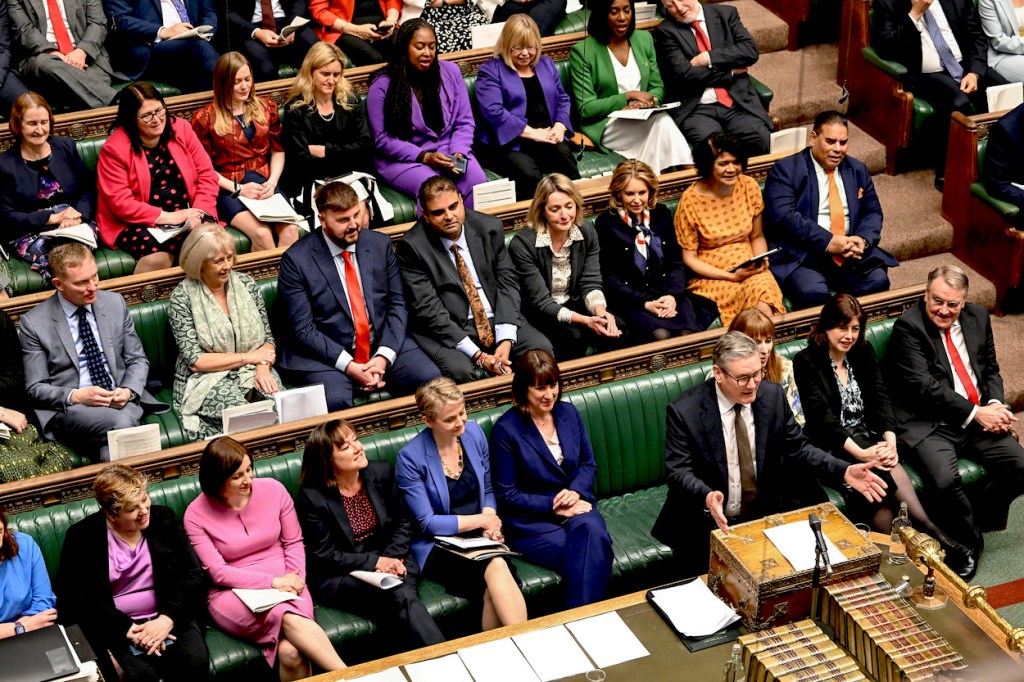Net Zero Secretary Ed Miliband is preparing to be grilled by the Energy Security and Net Zero Committee this afternoon – and Mr S has a question for the lefty Cabinet minister too. While the veteran politician has expended a lot of his own energy on taking a pop at net-zero sceptics for ‘talking their country down’, he appears to be neglecting some rather important decision-making. As parliament prepares to rise for recess, Mr S would like to know whether Miliband has finished dithering over a dilemma regarding China’s influence over Britain’s infrastructure: specifically, the curious case of Mingyang Smart Energy.
Miliband seems to be dragging his heels over what exactly to do about a windfarm project in Scotland that could see British reliance on Chinese-made turbines.
Miliband appears to be dragging his heels in considering what exactly to do about a windfarm project in Scotland that could see British reliance on Chinese-made turbines. Mingyang Smart Energy is a private Chinese company with close ties to the Chinese Communist Party. The organisation is hoping to sign a contract with Green Volt North Sea – jointly owned by Flotation Energy, a Scottish company, and Vårgrønn, a Norwegian one – which is constructing the first commercial-scale floating offshore wind farm in Europe. The project aims to deliver electricity to oil and gas platforms (in place of power generated via gas and diesel turbines) and power the UK grid. Green Volt has been waiting on approval from the government to go ahead using Mingyang-made blades for months – but with no response as yet, the company remains in limbo. The contract would involve Mingyang establishing a turbine factory in Scotland – a move the Trump administration has directly warned the government against over security concerns. So much for a just transition, eh?
The decision to allow Mingyang machinery has left ministers divided amidst an ‘ongoing discussion’ on the role of China in Britain’s critical infrastructure. Concerns centre around national security, as well as the possible use of forced labour in supply chains – such as from the repressed Uyghur population in Xinjiang province. Mingyang’s CEO and chair Zhang Chuanwei has links to the CCP and is regarded as a longtime party loyalist. As noted in a 2021 profile of the company boss by Gavekal Fathom China, Zhang joined the People’s Liberation Army as a clerk in 1978, aged just 16, before applying to join the party at 18. Zhang even served as a CCP representative in the 12th and 13th National People’s Congress from 2013-2023. How very interesting…
Ministers are of course able to block any investment into the UK under the 2021 National Security and Investment Act of 2021 and the government has stopped Chinese investment in the past over ‘national security risks’. In 2022, the government halted the takeover of the UK’s largest producer of semi-conductors by Nexperia, a Chinese-owned manufacturer. And Miliband’s dilemma comes just months after Chinese company Jingye came under fire over its steel production plant in Scunthorpe in April, when it threatened to turn off the blast furnaces. While Business Secretary Jonathan Reynolds suggested ‘neglect’ could have been the issue, reports at the time saw government officials pushing the theory that there had been a ‘plot to sabotage’ the British Steel plant. Tensions heightened when China snubbed a major 60-country UK summit on energy security the following week.
So why is Miliband taking so long to make up his mind? Well, the Energy Secretary has remarked before that the foreign power is integral for global climate action. ‘It is simply an act of negligence…not to engage China on how it can play its part in taking action on climate,’ Miliband said in March following his trip to Beijing for the UK’s first formal climate talks with China since 2017. During his visit, Miliband met the Chinese vice premier Ding Xuexiang as well as the head of the country’s National Energy Administration, Wang Hongzhi, and is said to have pointed to ‘mutually beneficial results’ of cooperation, including in the offshore wind sector.
But all that considered, there remain rather concerning questions of national security. For their part, a government spokesperson told Steerpike: ‘We would never let anything get in the way of our national security, and while we would not comment on individual cases, investment in the energy sector is subject to the highest levels of national security scrutiny.’ Whatever – and whenever – will Miliband decide? The clock is ticking…








Comments